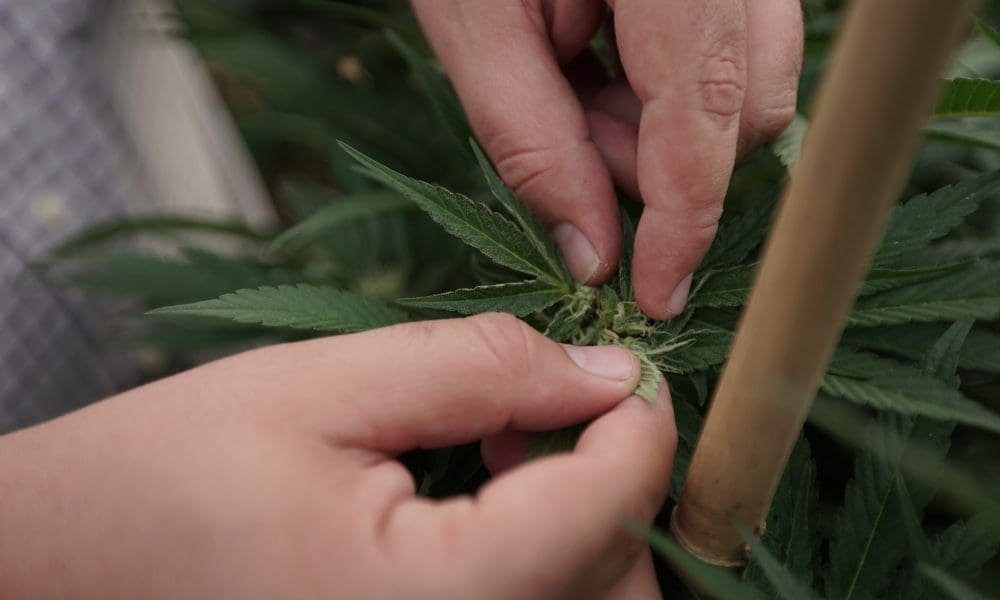Legalization is a step forward, but it won’t satisfy us until we free every cannabis prisoner.
Redemption Cannabis, The Redemption Foundation and Ryan Basore
Just a few years ago, while serving my time in Morgantown Federal Prison in West Virginia for the cultivation of medical cannabis according to Michigan’s State Law, I was incarcerated. I wasn’t involved in drug trafficking. I didn’t run guns or launder money. I was licensed by the state to use cannabis for people who had debilitating illnesses. I was one of thousands who were targeted by the federal government when it treated medical cannabis providers as public enemies.
Today—July 11—my cannabis brand launches in the same town in which I spent years behind bars for growing medical cannabis.
Even though it was a traumatic experience, I didn’t want to let that stop me from doing the right thing. Redemption Cannabis is one of Michigan’s most popular cannabis brands, and it supports people who are still serving jail time for nonviolent marijuana offenses.
In partnership with Trulieve and Altvm we offer cannabis products in Michigan, Maryland Oklahoma, Pennsylvania, and West Virginia. I used to wear prison tans there. The redemption I experienced is one of which I’m very proud, yet it’s a privilege denied to too many.
Many Americans remain in prison for marijuana offenses despite the fact that cannabis has been legalized across most states. What is their “crime?” Often, the actions taken by these “criminals” are what built up today’s cannabis industry worth billions of dollars. Justice hasn’t caught up with legalization.
To change this, I started the Redemption Foundation (RF) in 2019. We’ve funded over 2,000 expungements for free and given direct financial assistance to cannabis federal prisoners in the United States.
Our commissary is one of the core initiatives. It allows people who are incarcerated on non-violent marijuana charges to receive up to the maximum of $300 per month. Support like this is not just useful for someone making $14 a week in prison. It’s life-changing.
We partner with other organizations, such as the Weldon Project Mission Green or the Last Prisoner Project, to increase our impact and reach. Not just a release is the goal, but restoration. It means helping the people to return home, access housing and jobs, as well as reclaiming their dignity.
Here’s the truth: These contradictions will continue to exist unless federal law is changed. Cannabis is classified under the Controlled Substances Act as Schedule I, which means it’s a drug with a high potential for abuse and currently no medical application. People will continue to be sentenced until that happens, even though legalization is spreading.
The expungement alone is not sufficient. It’s not automatic in many states. For people to lead a normal, fulfilling life, they need resources like attorneys, documentation, court appearances, etc., that are not always available. It is difficult for them to get a job, find housing, or continue their life. A lucrative cannabis industry is emerging, built on the backs of pioneers, who remain behind bars, or are locked out of legal industries.
The people who were willing to take risks to make cannabis legal and consume it, despite the fact that doing so was neither safe nor legal, are responsible for our current freedom. It is important to acknowledge that their sacrifices led us to our current prosperity.
Redemption Cannabis license revenue of 10 percent goes towards supporting and releasing those who are still in prison. By purchasing our products you are not only consuming but also contributing to justice.
It’s not just a brand name. Redemption is our mission.
We will not be satisfied with legalization until all cannabis prisoners are released.
Ryan Basore founded Redemption Cannabis, the Redemption Foundation and supports cannabis prisoner and fights restorative justice within the cannabis industry. Prior to this, he served a federal prison sentence in Michigan for the cultivation of medical marijuana.
Side Pocket Images. Image courtesy Chris Wallis.




